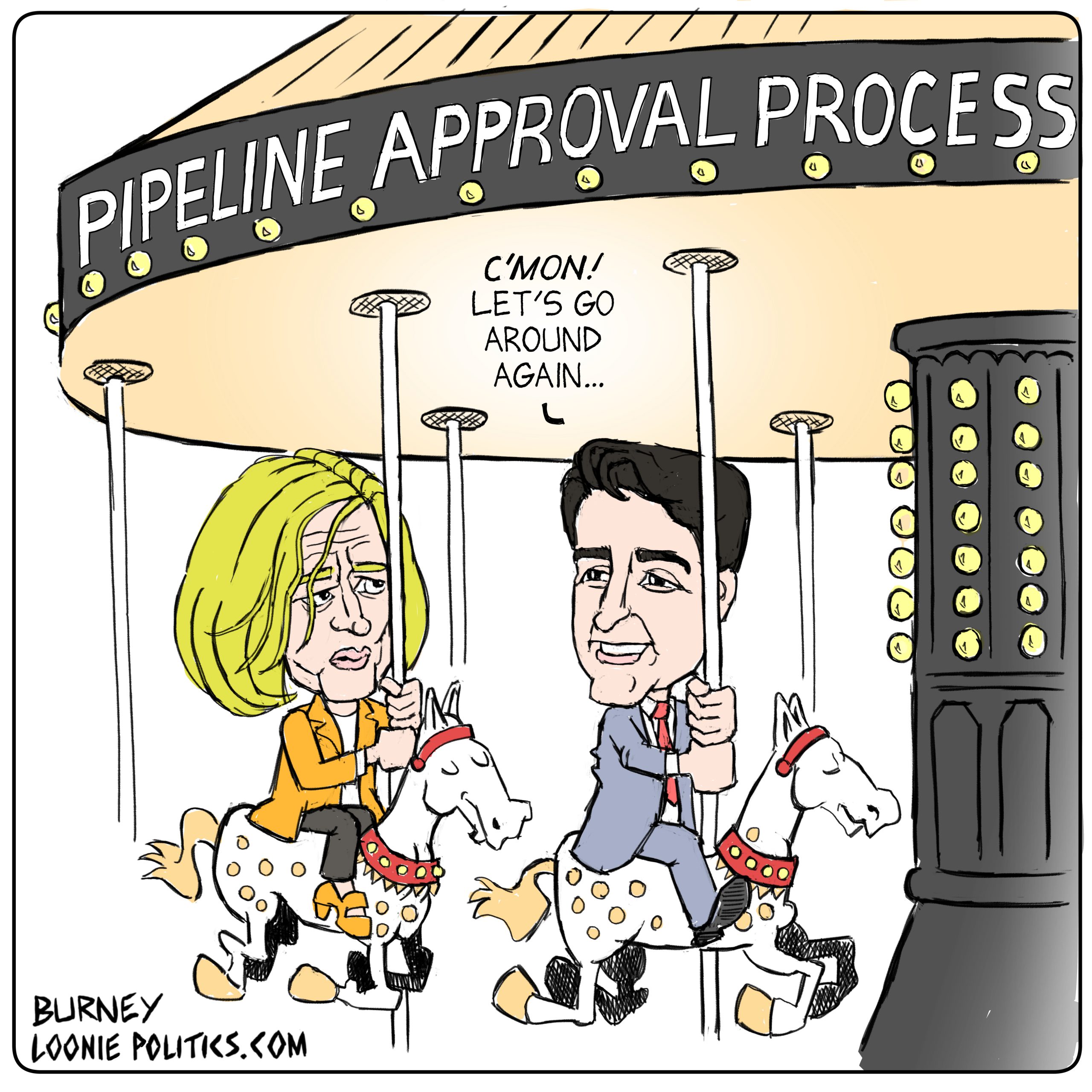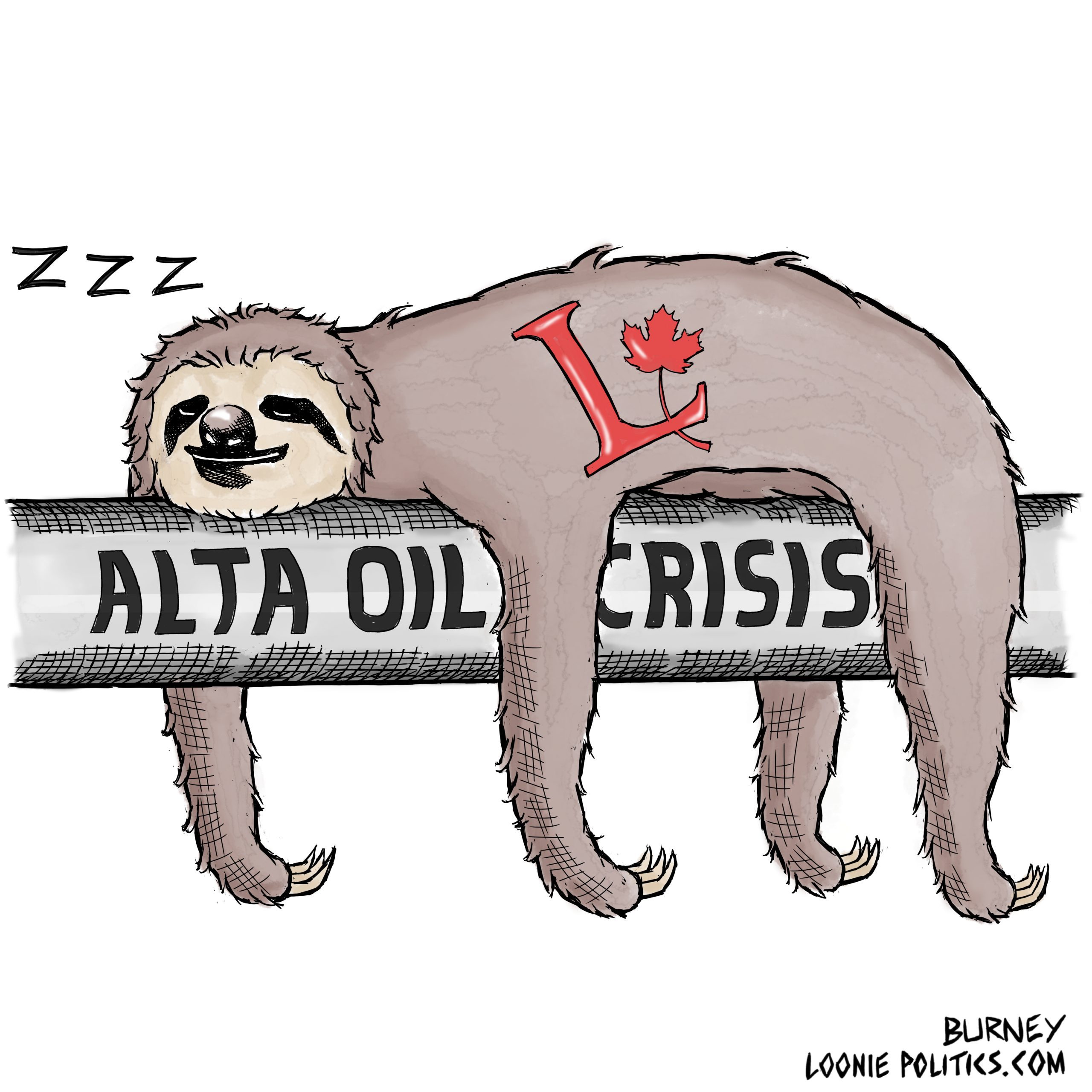Yellow vests are appearing in central squares in Alberta. Can tear gas be far behind?
Well no, tear gas is not in the offing. And even though some punches were thrown at a recent protest in Edmonton, Alberta isn't France and the current malaise in the province isn't likely to shut down public services or tourism venues.
It's tough to sustain a really angry mob when the pavement underfoot is prohibitively icy and the temperature plummets after dark.
Despite the unlikelihood of protests getting out of hand, Ottawa needs to listen far more closely to complaints from Alberta if it wants to avoid escalating the west's alienation and creating possible serious fissures in confederation.
The core issue is the energy industry's frustration over Canada's inaction on pipelines to ease the price crisis crippling the business and killing jobs.
The federal government's tin-eared attempt to buy off the oilpatch with a $1.6 billion announcement this week did not furthering the cause of peace in our time.
No member of the provincial government turned up to the federal aid package press conference. Clearly the Alberta NDP is anxious to avoid photo ops with Ottawa's hated Liberals these days.
Premier Rachel Notley was fairly savage in her assessment of the package during a press scrum in Calgary.
The money, she pointed out, actually doesn't involve much cash. It is mostly loans, ostensibly to help energy companies invest in technology and seek new markets. That access to capital might help a few small producers, said Notley but offering business the opportunity to go further into debt isn't the answer.
Alberta needs pipelines and, while waiting for those, it needs more railcars to get oil to market, argues Notley. And how about some funds to put laid off oil workers to work cleaning up orphaned oil and gas wells?
Notley accused the feds of cutting and pasting previous aid programs for steel, aluminum and forestry sectors hit by trade disputes rather than listening to the people in Calgary and Edmonton who really know the solutions to the oil patch malaise.
"We can only assume this is a first step and there is more to come," said the premier.
UCP Leader Jason Kenney was quick to chime in.
"Not a single one (energy company) has said that what they want or need is government loans for 'energy diversification,'" he tweeted.
It's safe to say the average oil worker doesn't think the fix for the current crisis is capital for technological advancement. The present technology is doing just fine at sucking oil and gas out of the ground or separating it from the oilsands, those workers would argue.
And there's no point in investing in pipeline technology when so far the central government can't find a way to push through pipeline expansion, despite its dramatic purchase of the Trans Mountain pipeline.
A few jobs may come out of the $1.6 billion announcement but not enough to calm strident protest voices.
Notley acknowledges that there will be no quick end to the kind of rallies that have popped up already in Edmonton, Calgary and Grande Prairie. The government's economic development minister Deron Bilous and Kenney spoke at the Grande Prairie protest supporting pipelines. RCMP estimated the crowd at about 1,500.
In Calgary protestors booed Mayor Nahid Nenshi for a comment acknowledging climate change.
So far, the bulk of the protestors have been focused on their opposition to the federal Liberals. Anti-Trudeau, anti-Bill 69, anti-carbon tax signs dominate the crowds. But more concerning is a broader unfocused anti-establishment sentiment.
Taking a leaf from the yellow vest movement, the message in these crowds includes other grievances.
Anti-UN and anti-immigration placards popped up on the edges of these crowds.
Those elements worry Notley, who alluded to them in her press conference. Extremist positions around racism only undercut the message, she warned.
Free-floating discontent breeds those marginal sentiments. Rather than let them gather strength, the federal Liberals needs to find a way to meaningfully address the cataclysm in the oil patch. The touchstone elements are obvious in the signs: address the pipeline issue; scrap Bill-69 which has become a focus for the angry oil patch; chip in for railcars.
In the meantime Notley and Kenney are willing to fire up conventional protests in the interest of spurring political action on the oil crisis. But neither wants to open the door to radical elements, or the need for tear gas.
Photo Credit: Jeff Burney, Loonie Politics








